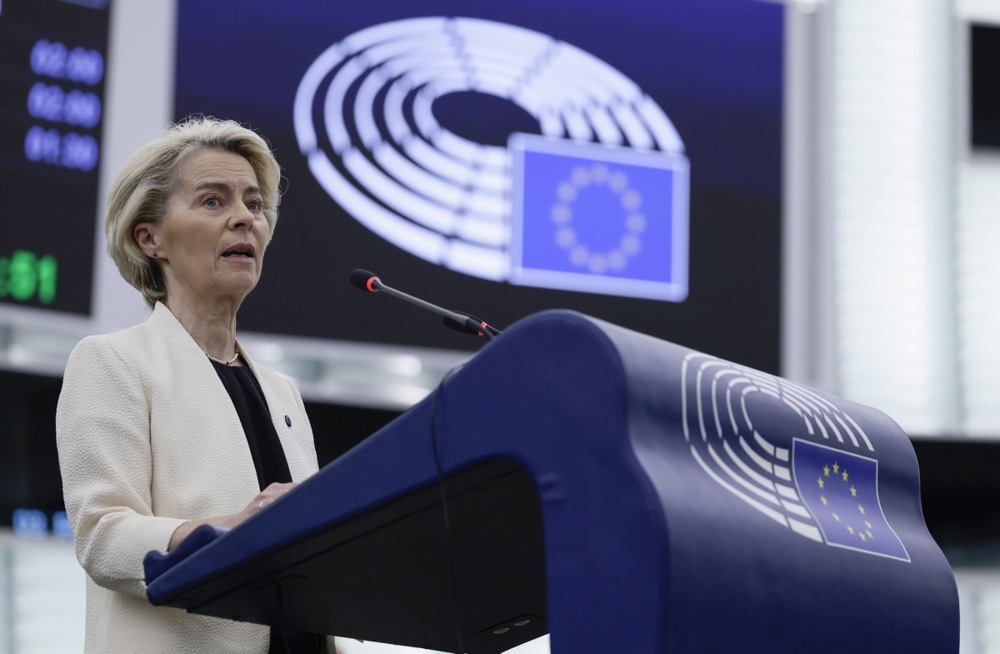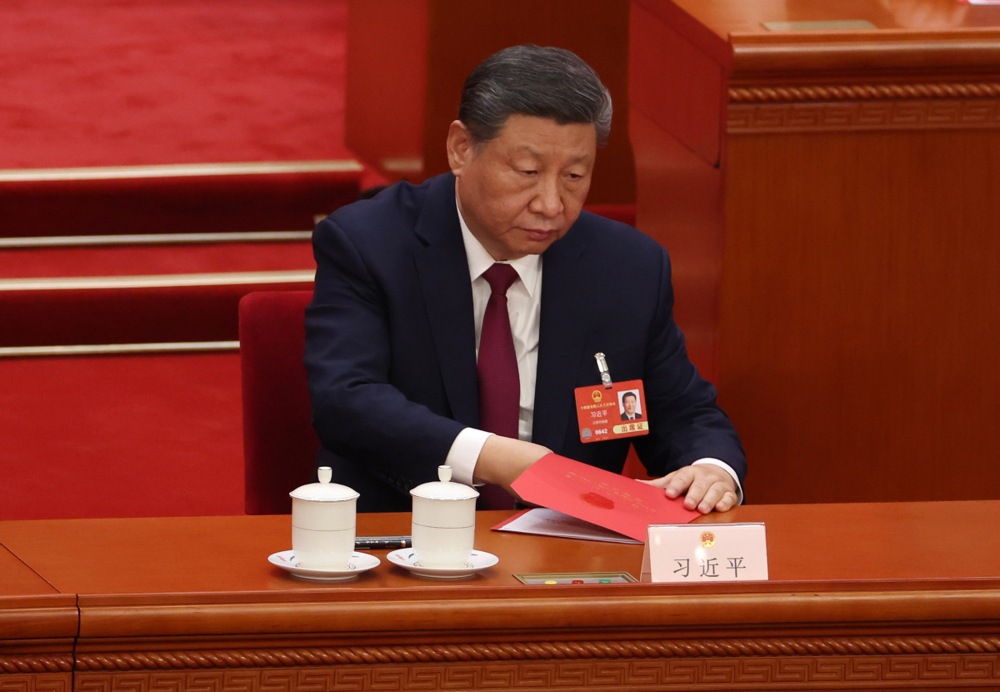Ferdinand Kartheiser, an MEP from Luxembourg, has been booted out of what he says is the “war-minded” the European Conservatives and Reformist (ECR) Group in the European Parliament because he went to Moscow on Victory Day.
Kartheiser met with Russian officials at the event on May 9, despite warnings from his own group not to do so.
According to the ECR, his behaviour violated core principles of the group. The ECR held the Kremlin fully responsible for the war in Ukraine.
In a reaction to Brussels Signal on June 4, Kartheiser said he was not looking to leave the ECR. “It has been my political family for 16 years.”
The Luxembourg politician added, though: “They don’t want dialogue, many in the group are war-minded.”
Kartheiser said the war in Ukraine should be resolved as soon as possible, peacefully. He said that the priority should be to save human lives.
“Contrary to the EU, we should do it via dialogue and re-establish communication between the EU and Russia.”
Asked if there had been further arguments or tension within the group, Katheiser said there had been discussion about policy towards Russia in December 2024. Since then, the ECR had opened a file on him, closely followed him and said that the group found him too favourable towards Russian President Vladimir Putin.
“This is not an honest relationship anymore. If an organisation holds political inquiries on its own members, it’s not a democratic system,” he said.
Kartheiser insisted he wanted to remain independent — for the moment. He said he preferred not having to face any ultimatums on his viewpoints. “I don’t like such behaviour… to compel people to certain positions. I don’t want to be in such a situation, where people feel entitled to give orders.”
Kartheiser said his expulsion was driven by the “hardliners” in the ECR — particularly MEPs from the “Nordics, Baltics and Poland”, which he called “anti-Russian” countries. He added that people from those nations acted similarly within the the Organisation for Security and Co-operation in Europe (OSCE) and other international platforms.
He said many ECR delegates did not participate in the vote on his expulsion. Among those who did, though, the result was nearly unanimous in favour of expulsion.
Kartheiser claimed that several confided to him afterwards that they felt compelled to vote in favour to avoid being labelled as “Russophile.”
“There is a broader, quiet sympathy for a more nuanced stance, but few are willing to express it openly due to the political climate,” he said.
Kartheiser shared the news with Cypriot MEP Fidias Panayiotou, who has also faced criticism for engaging with the Russians and who has been accused of being pro-Putin or, at the very least, of falling for Russian propaganda.
His EU Political Group Kicked Him Out Because of This @FernKartheiser pic.twitter.com/9eB8mTj0yg
— Fidias Panayiotou (@Fidias0) June 4, 2025
In a press statement sent to Brussels Signal, MEP Nicola Procaccini, co-chair of the ECR, said: “There are moments when silence would mean complicity, and when actions must speak for our values. Our support for Ukraine is not rhetorical.
“It is rooted in our convictions: sovereignty, security, and justice. This was not about personal opinions. It was about maintaining a clear and united position on one of the most fundamental issues facing Europe today.
“A political group cannot function if its core principles are called into question from within. That is why this decision was necessary,” she said.
“It’s right to recognise Mr Kartheiser’s courtesy, his otherwise constructive approach and his intellectual contribution to the ECR.”
The Russian parliament, the Duma, had invited the Luxembourg politician, who said he went to discuss bilateral relations, the situation in Ukraine, human rights and international politics with “our Russian neighbours”.
Before leaving, Kartheiser shared a video, addressing the Russians in their native language.
His European group immediately distanced itself from the trip, saying he was travelling privately, in an individual capacity and did not represent the ECR.
Polish MEPs promised they would table a motion to expel him if he made the trip.
Kartheiser went anyway and said he had “good talks” with Russian officials.
“From migration and security policy to human rights and the protection of civilians in Ukraine, as well as other important matters I raised – our Russian interlocutors were remarkably open and understanding”, he said.
“They clearly grasp our concerns and approached the discussions with friendliness, politeness, and a genuine willingness to engage.”
Kartheiser has been advocating for humanitarian ceasefires in the Ukraine war and claimed that Russia desired peace.
The ECR has been outspoken about the conflict and its support for the Ukrainians.
Most parties in the group have been highly critical of Russia and staunch supporters of NATO.
The @ECRparty Executive Board has placed on the agenda of the upcoming Board and Council meetings a review of possible measures regarding recent actions by MEP Ferdinand Kartheiser, which appear to be at odds with the Party’s policy.
— ECR Party (@ECRparty) May 30, 2025
Kartheiser undertook postgraduate studies at the Diplomatic Academy of Vienna and later worked in Bonn and as Deputy Permanent Representative to the OSCE in Vienna.
Following that, he was appointed as ambassador for Luxembourg to Greece, Cyprus and Romania, before obtaining a post at the Ministry of Foreign Affairs in 2008.
In 2013, the media in Luxembourg reported that Kartheiser was a double agent for the CIA and the Russian GRU during the Cold War.
He confirmed that he had worked as a double agent to Brussels Signal but added nuance to the story.
At the time, when he was a military officer, he was on leave to study and was approached by an agent of the Russian foreign military intelligence service (GRU). Katheiser reported this to his superiors, who in turn took it to the CIA.
The latter advised him to talk with the Russian, hear him out and report back. “I did my duty for my country,” Katheiser said.
European Council president António Costa has taken a soft stance toward Serbia’s populist leader, Aleksandar Vučić — even after Vučić stood beside Vladimir Putin in Moscow to mark Victory Day. https://t.co/01tOp4gouQ
— Brussels Signal (@brusselssignal) May 14, 2025





